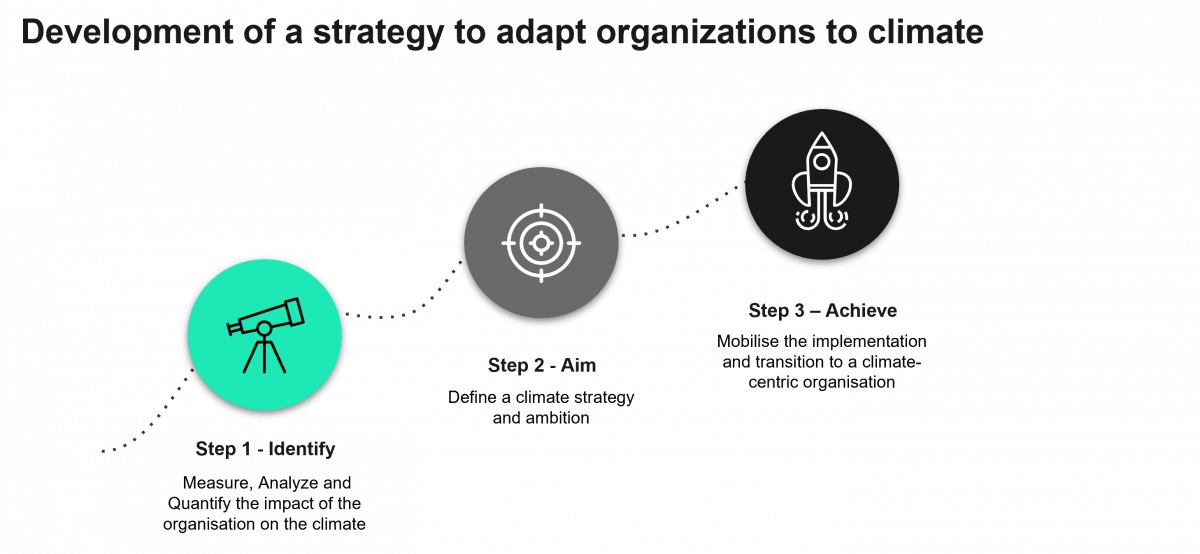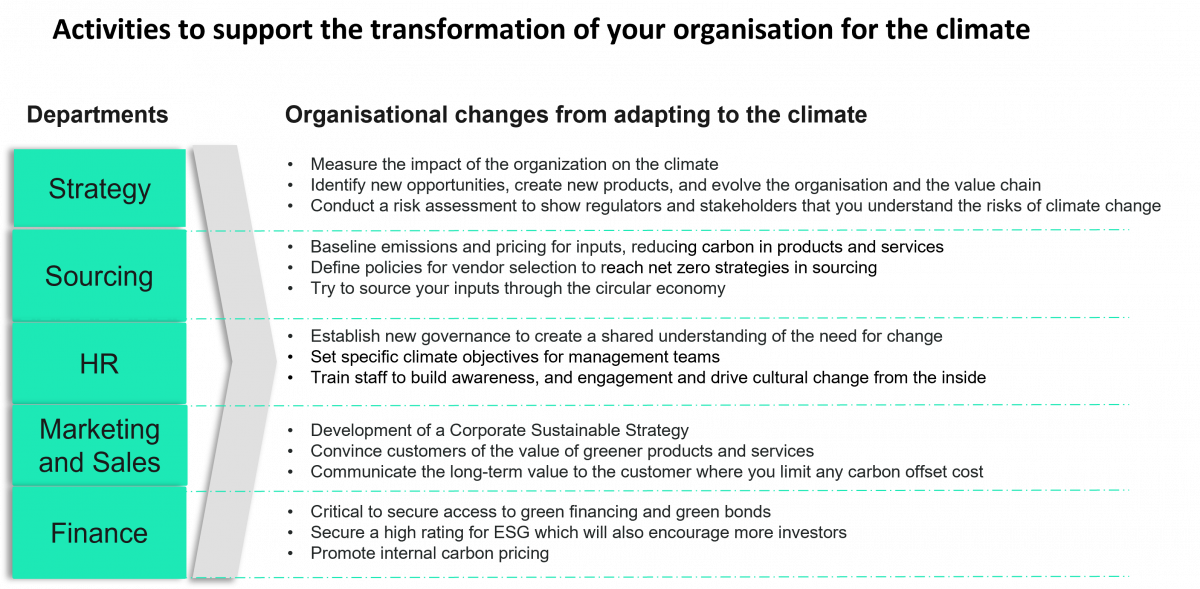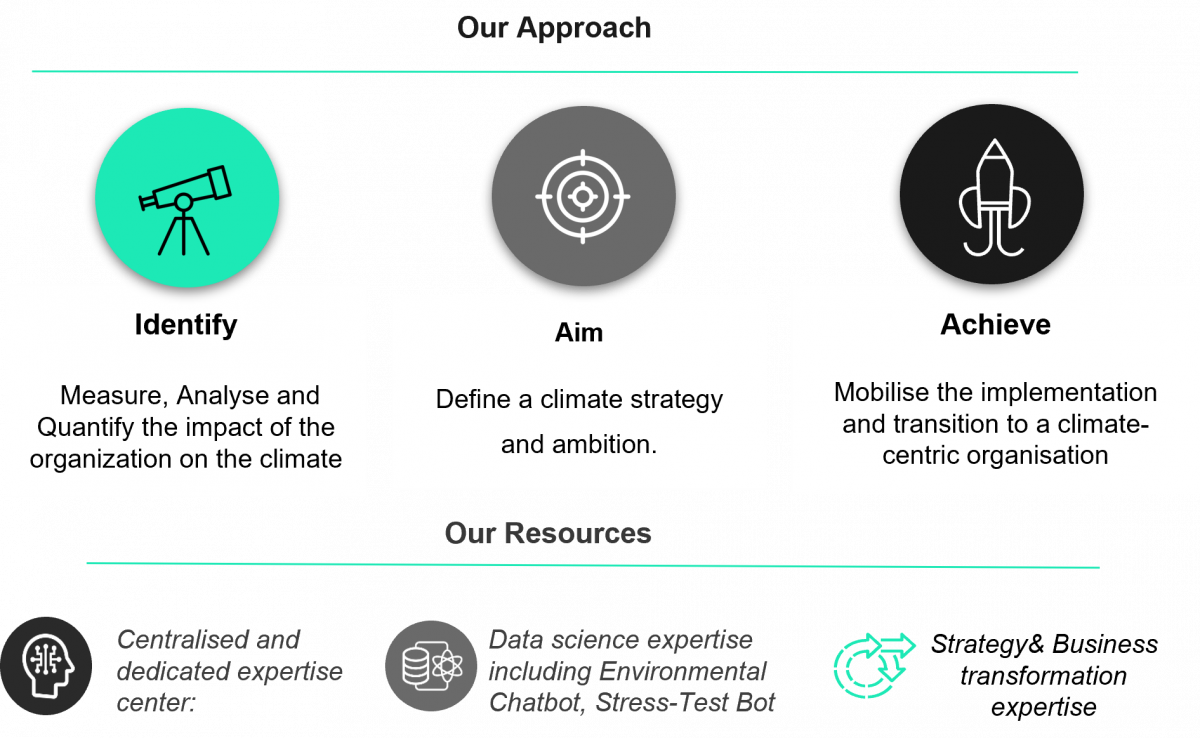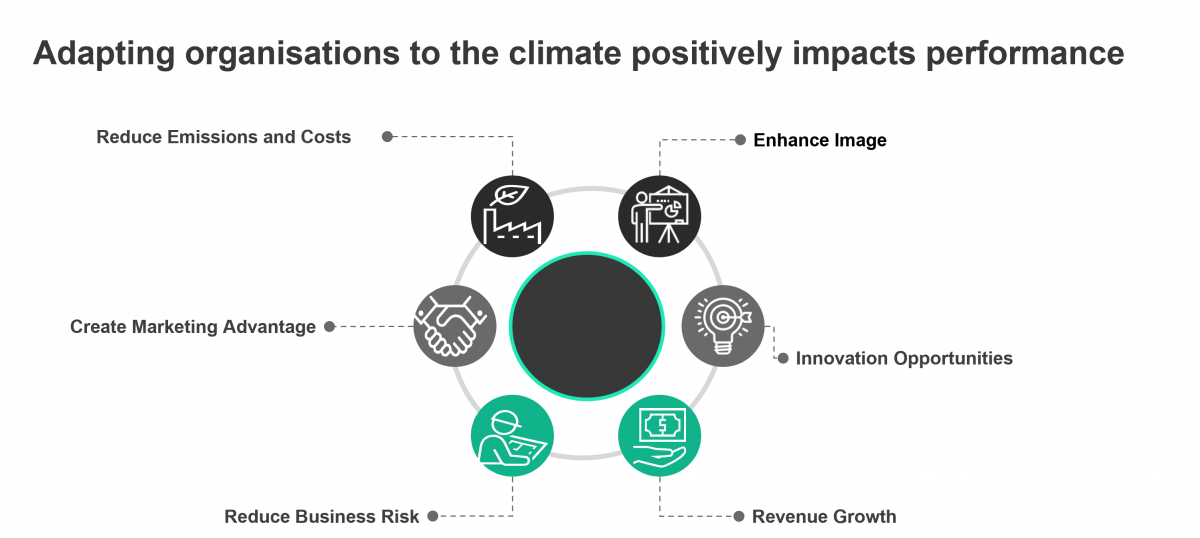Agentic AI: Are you ready?

The impacts of climate change pose a global risk to businesses. This requires the adaptation of business organisations, their strategy, and operating models to move towards carbon neutrality.

A rapidly changing climate is the most significant global challenge faced today. The impacts of anthropogenic climate change have never been more evident, with forest fires, flooding, melting glaciers, crop failures, and severe weather events becoming increasingly more intense and frequent.
The most recent IPCC report has estimated that global surface temperatures are expected to reach the 1.5°C level in the next two decades, all but locking us into the impact of climate change until mid-century unless the most drastic cuts in greenhouse gas emissions are taken. If global temperatures continue to rise between 1.5°C and 2°C, the IPCC states that Climate Resilient Development will become increasingly more difficult, and in some cases impossible.
Sia Partners offers a three-step approach to support its clients which includes the identification, aim, and achievement of climate initiatives to shift businesses to transform for the climate.
Phase 1 – Identify - Measure, Analyse and Quantify the impact of the organisation on the climate
Phase 2 – Aim - Define a climate strategy and ambition
Phase 3 – Achieve - Mobilise the implementation and transition to a climate-centric strategy

The mobilisation of leaders (political support) via the real will of ambition (aim for carbon neutrality, openness to changes, etc.)
A clear and structured methodology to treat and prioritise the diversity of issues and impacts
Appropriation by employees and stakeholders (participation, communication)

Adapting climate initiatives into an organisation can include a commitment to achieve carbon neutrality, which has many economic, social, and environmental benefits for the business concerned.
The first level of engagement – Ensure compliance and business risks are mitigated
The second level of commitment - Commit to initiatives and realise improvements in attractiveness and performance
The third level of engagement - Commit to ensuring the adaptability and resilience of the organization
To help adapt any Business towards Sustainability, Sia Partners offers an effective development process with our 3-step methodology.
Our accelerators:
Sia Partners climate analysis centre lab
Strategy & Business transformation expertise
Weather and climate data to measure physical risks
Energy expertise: support for decarbonisation strategy, M&A for the energy sector
Proprietary AI Data analysis technology
Measurement and evaluation of ESG and customer data

One study estimated that companies experience an average internal rate of return of 27% to 80% on their low-carbon investments.
A sustainability and corporate performance report found that 88% of companies with good ESG practices have better operational performance; with 80% showing positive stock price performance correlating with good sustainability practices.
92% of institutional investors want companies to identify and report ESG factors that materiality affect their business performance.
Employee loyalty was 38% higher in companies that implement sustainable efforts.
Prioritising sustainability allows for new technology and product/service opportunities, leading to business growth and job creation.
Products marketed as sustainable grew 5.6 times faster than those that are not. In addition, overall sales revenue can increase up to 20% as a result of transparent corporate responsibility practices

Identify
Aim
3. Quantify the value of initiatives and validate through workshops.
4. Support you to redefine your strategy, updating vision, mission, strategic objectives, and outcome measures.
5. Determine where existing strategic pillars need to change and if stand-alone climate initiatives require their own pillar.
Achieve
6. Define climate-related initiatives for delivery and work with organisations to implement them successfully.